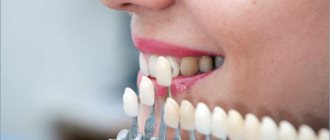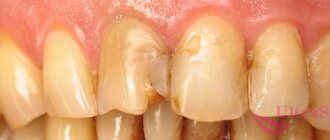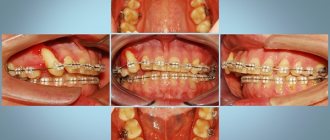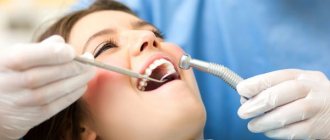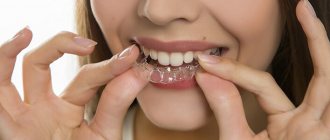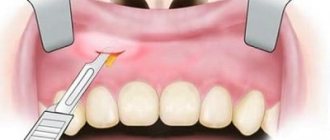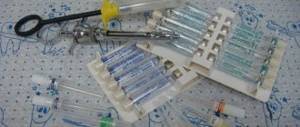10.03.2017
Dentist - it is difficult to imagine a representative of the modern profession who would evoke the same strong emotions in almost every person. These emotions vary in strength, however, they are almost always negatively colored - from mild hostility to panic fear.
A person feels anxious in the event of an unclear danger , the source of which the person cannot determine. It is this uncertainty that makes a person anxious.
Fear is an emotional reaction in a frightened situation. Fear, unlike anxiety, is always associated with a specific situation that caused the fear.
A phobia is the experience of an inadequate manifestation of fear or horror when a certain situation is repeated. So, a child may be worried if he is not sure: what is happening in the dentist’s office? Already sitting in the dental chair, a child may be frightened by unexpected pain during a particular dental procedure and experience fear. This fear, if the child is particularly sensitive or if the parents’ actions are not entirely pedagogically correct, can develop into a phobia: an unsuccessful first trip to the dentist can be delayed by a strong emotional shock, and the child may begin to be phobically afraid of even the mere mention of the dentist.
Without telling the child in advance about the work of the dentist and about the process of examining and treating teeth, parents thereby doom the child to experience anxiety before visiting the doctor: after all, he does not know what will happen to him in the office, the child can only fantasize about this.
Only modern small children and teenagers are completely calm about visiting the dentist, who from the very first time began to be served and treated by polite uncles and aunts using advanced technologies and the latest equipment.
What is dental anxiety?
Dental anxiety is when a patient feels afraid that something terrible is going to happen during a visit to the dentist. The patient may feel scared or anxious because he feels he is not in control of the situation or is afraid of losing control.
Many people experience dental anxiety when they see certain dentist tools, pain, or noises. A person with PTSD, bipolar disorder, schizophrenia, depression, or general anxiety is more at risk for dental anxiety.
Here are the symptoms that occur in patients with dental anxiety:
- desire to cry
- low blood pressure
- dizziness (premonition of fainting)
- cardiopalmus
- sweating
- increased irritability
Finally, dental anxiety may be caused by previous experiences with the dentist or trauma caused by the dentist. However, in most cases, such fear stems from negative experiences the patient received in childhood.
Reasons for the development of dental phobia
To date, a lot of research has already been carried out on this problem. Experts have identified quite a lot of potential causes that can lead to the development of a phobia. Above we have already talked about three different forms of this pathological condition, and now we will take a closer look at the prerequisites for their development.
Acquired form
This form arises as a result of negative experiences in the past. This may be due to severe pain experienced during the procedure, or, for example, incorrect behavior of the medical staff, poor quality treatment, which led to complications. In other cases, an acquired type of phobia occurs against the background of the development of mental disorders and hypochondria.
The problem is innate
In this case, the phobia often develops against the background of pathology of intrauterine development, which leads to disruptions in metabolic processes, in particular to disturbances in the production of norepinephrine and serotonin. The prerequisite for this condition may include genetic predisposition, fears and anxieties that the mother experienced during pregnancy, especially in the first trimester. As a result, a child aged 10 to 15 years may develop intolerance to the sight and smell of blood and have a low pain threshold.
Anxiety and stress experienced during pregnancy can cause fear in the child in the future.
Imaginary fear
Here, the main prerequisite for fear is negative information received from the outside - from relatives, friends and acquaintances, as well as from the media. The reason may be difficulty tolerating the sound of dental equipment, fear of pain, and mistrust of doctors. Some parents independently scare their children by going to a scary and evil doctor if they refuse to obey. And this is a serious mistake, which can subsequently cause a huge number of problems.
Treatment options
Recognizing the presence of a disorder is the first step towards recovery . Without awareness of the presence of a phobia, the disease will only progress. Only by admitting your fear can you fight it.
Dentophobia, like other phobias, is completely curable and with the right approach, it is quite possible to get rid of this disease. Perhaps the fear will not go away completely, it will remain on a subconscious level, but there will be no more panic attacks and uncontrollable seizures.
At a minimum, dentists will no longer inspire unrealistic horror.
It is best to start treatment of dental phobia with a consultation with a psychiatrist. After undergoing the examination, the patient receives recommendations, possibly some referrals.
Today there are two main ways to combat phobias:
- psychotherapy;
- medicines.
Psychotherapy in treating the disorder uses many techniques and techniques of influence. Under the supervision of a doctor, even self-medication is possible, the main thing is the desire for recovery.
The main and most effective way to combat a phobia is to overcome fear, a kind of shock therapy.
This treatment will require the patient's full consent or, at a minimum, his desire to be cured. Overcoming fear includes direct or indirect influence on the cause and essence of fear, gradual contact with the object of fear, communication with psychologists and analysis of achievements.
Dentophobia in life is shown on video
It is worth noting that despite the fact that it is overcoming fear that gives the most effective result , it is difficult to persuade a person suffering from a phobia to undergo this treatment.
They need to muster up the courage to agree and will look for all sorts of alternative ways to refuse.
An alternative is hypnosis, which became quite popular in the early twentieth century and is widely used in psychiatry. Treatment occurs by putting the patient into a state close to sleep. In hypnosis, a person analyzes his fear, its root cause, and certain frameworks are introduced to protect against attacks. Unfortunately, hypnosis does not work on everyone, and it does not always give the desired result. It is quite difficult to find specialists who work correctly and well with this technique.
There are other alternative treatments, most often aimed at reducing irritability and possible panic attacks. Such techniques can help with mild manifestations of a phobia, but are almost useless with a serious disorder.
Drug treatment is permissible only in the most severe cases , when all others do not work. The effects of drugs can adversely affect not only the psyche, but also the health of the patient. Medicines reduce symptoms and relieve feelings of fear without actually curing. Feeling temporary relief and finding an easy way out, a person can get hooked on pills without wanting to make any effort on himself.
All medications must be prescribed by your doctor and taken only under the supervision of a specialist.
The group of drugs prescribed to combat phobias includes:
- neuroleptics are psychotropic drugs that have varying effects on the mental functions of the body. Among them are prescribed: triftazine, pipothiazine, aminazine, clopixol, neuleptil, etc.;
- Antidepressants are drugs aimed at reducing feelings of depression, many of them can be taken with antipsychotics. The doctor may prescribe: toloxatone, moclobemide, pyrazidol, befol, amitriptyline, toloxatone, etc.;
- nootropic drugs are drugs aimed at stimulating the brain and mental processes, normalizing the patient’s brain activity. Among them they offer: meclofenoxate, cerebrolysin, vinpocetine, bemitil, aminalon, etc.;
- Anxiolytics are psychotropic drugs with medicinal effects. For phobias, the following are prescribed: diazepam, bromazepam, chlordiazepoxide, lorazepam, alprazolam, atarax, etc.
In addition, mood stabilizers and sedatives of various types may be prescribed.
It is worth remembering that treatment will only be effective in conjunction with psychotherapy , and we must also not forget about the side effects of some drugs. Pills are not a panacea, only an aid in recovery. In search of simple solutions, a person can cause himself even greater harm.
We recommend watching:
We recommend reading:
All information about the fear of insects - insectophobia
Previous article
Great material about demophobia - ochlophobia
Next article
If the advice doesn't help
Speaking about the irrational nature of dental phobia, we have to admit that in some cases it is impossible to overcome fears, because rational arguments in this case do not work and panic arises uncontrollably. For such patients, an adequate solution is provided - sedation, or drug-induced sleep. The method is well tested, has proven itself in practice, and has no negative consequences.
The state of light sleep is extremely pleasant; even a dental phobe will enjoy dental treatment during a dozing state!
Types of problem
This problem can be expressed in varying degrees of intensity and have different prerequisites. Based on these characteristics, experts identify three forms of pathological fear of dental treatment:
- acquired is the most common form of phobia, in which there is a stable nature and a high degree of intensity of manifestations. Typically, this condition develops after an unsuccessful experience with complex treatment or tooth extraction, including in childhood,
- congenital - a rare variety with pronounced symptoms that arise before any medical procedures, including injections, tests and even a simple examination,
- imaginary - often observed in children and people who have never visited a dentist. The problem is far-fetched, but manifestations of panic and fear are quite real. This form is the easiest to treat, and sometimes to solve the problem it is enough to see a good, qualified doctor a couple of times, who will be able to find the right approach.
It should be noted that simple anxiety and phobia are two completely different things. Moderate fear is considered a completely normal, natural phenomenon that occurs against the background of potential danger or in conditions of increased discomfort. Phobia is a serious pathological condition, and during attacks of horror, the patient experiences autonomic disorders. In this state, a person loses the ability to adequately respond to circumstances and make informed decisions.
Dentophobia can be congenital or acquired
Phobia is one of the manifestations of a neuropsychic disorder, and in the absence of professional psychotherapy it can lead to serious complications. To recognize the problem, specialists assess the patient’s condition based on a number of characteristic signs, which also manifest themselves at the physical level.


